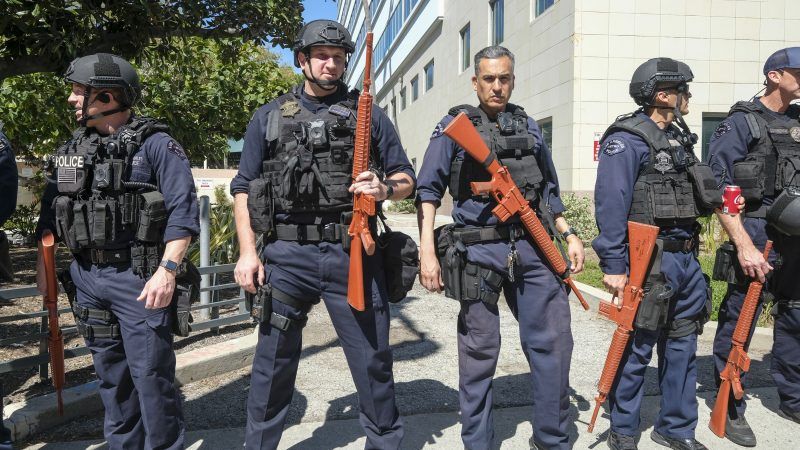California Police Agencies Were Supposed To Make Misconduct Records Public. Why Isn't It Happening?
Media outlets are seeing foot-dragging, destroyed records, and demands for big money for compliance.

California judges ruled earlier this year that a new California law making police misconduct records public is retroactive, so that means law enforcement offices are opening up the file cabinets and sending off photocopies in response to media requests, right?
Ha. No. They're continuing to fight by trying to charge massive fees, destroying records, and, in some cases, simply not responding. Reporters from four different California media outlets recently combined forces to explain what's been going on with obstruction efforts against a statewide project where journalists attempt to report on newly available misconduct records.
S.B. 1421, passed in the fall of 2018, requires that California law enforcement agencies start making public records of police conduct in cases where officers fired their weapons, killed or seriously injured somebody, engaged in sexual misconduct, or engaged in dishonest conduct while on the job. These were records that have been kept sealed from the public for decades, per state law, preventing the public from knowing whether police officers in their midst had been abusing their power.
While there were some very promising initial stories at the start of 2019 as S.B. 1421 was formally implemented, things seem to have gone wrong. Seven months later, many law enforcement agencies within California are not releasing the records as state law mandates. Some, like the California Highway Patrol, have not coughed up a single one. From the Los Angeles Times:
Both the Orange County Sheriff's Department and the Long Beach Police Department have yet to release any records to KPCC, the Los Angeles Times, the Orange County Register or KQED.
The Los Angeles County Probation Department, which supervises youths held in detention, has declined to release records, claiming disclosure about cases involving minors is prohibited by law. Records from the department, which also supervises adults, could be redacted to remove names of protected individuals.
[Los Angeles Sheriff Alex] Villanueva has refused to search for records, instead demanding that reporters identify specific cases they are seeking. The Sheriff's Department released records about one deputy to the Los Angeles Times, a handful of separate files to KPCC, but nothing to the Orange County Register.
Villanueva's office has declined to provide any records to Reason about Villanueva himself. When Villanueva ran for office, he claimed that he had been unfairly targeted by higher-ups at the Los Angeles Sheriff's Department (LASD) for discipline because he had complained about misconduct by leaders. So Reason, under S.B. 1421, requested his discipline records back in January. Initially, the sheriff's department did not comply because the Association for Los Angeles Deputy Sheriffs sought an injunction and attempted to argue that S.B. 1421 was not retroactive.
Ultimately, that effort failed and multiple judges across the state ruled that the law is indeed retroactive as the bill's sponsor, Democratic State Sen. Nancy Skinner, had intended. In March, the LASD informed Reason that our request for Villanueva's records was being processed.
It's now July and we've gotten nothing. In fact, the LASD's public records request office is not replying to emails from Reason requesting updates. It looks as though we're not alone.
Some cities and counties decided that January 2019 was the right time to catch up on housekeeping and have destroyed years of old police records over the past few months. Many have insisted that the timing is just a coincidence. But as the Los Angeles Times notes, many of the records from these offices—like Yuba County's Sheriff's Office—had been kept around for much longer than internal guidelines required; it was just after these agencies knew they could be forced to disclose them that such records were destroyed.


Show Comments (33)